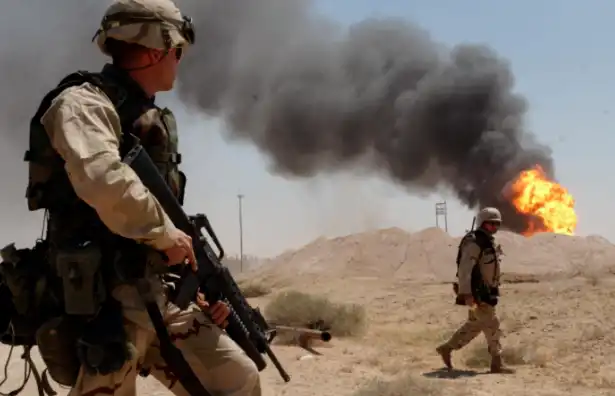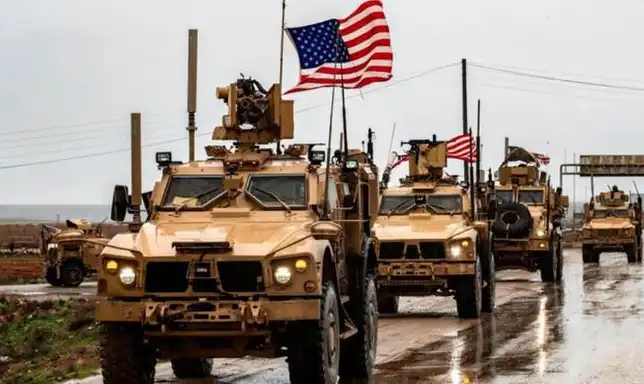The US military's weakness is revealed:Loss of logistics supplies and popular support or defeat
Throughout history, war has often accompanied the rise and fall of nations, and the United States, as the modern world's superpower, stands at the pinnacle of global military and technological might.
Even such a powerful country has its weak points and fears during wars. Mr. Zhang Zhaozhong once pointed out that even the powerful U.S. military will be helpless if two situations occur.

Since the founding of the United States, its war machine has been in constant operation, from the Revolutionary War to the Civil War, to both World Wars and many smaller conflicts in modern times—often profiting handsomely from the conflicts.
It can be said that the US made a fortune from the “warfare”. However, there are two deadly weaknesses behind this seemingly invincible war situation.
First of all, we all know that "before the soldiers and horses move, food and fodder come first" is the iron law of war. Although weapons and equipment in modern warfare are changing with each passing day, the importance of logistical supplies remains as important as it was in the past. Take the Bastogne War as an example,
Despite being besieged by the German army, the US military was still able to turn the tide of the battle due to its strong logistical system, which demonstrates the decisive impact of logistical supplies on the outcome of a war.
Just imagine, once the logistical supply line of the US military is cut off, the frontline soldiers will face a desperate situation without ammunition or food. Even the best-equipped and highly-trained army cannot stand against the dual onslaught of hunger and lack of ammunition.
Therefore, the smoothness of logistic supplies is directly related to the combat effectiveness of the US military and the victory or defeat of the war.

In another respect, the old maxim "those who follow the right path will receive much help; those who go astray will not get much help" also applies to modern warfare. War is not just a contest of military strength; it is more a contest for the people's hearts and minds. The Vietnam War is a typical example of the United States losing the hearts and minds of its people.
The 20-year-long war not only drained the U.S. physically and financially, but also sowed profound weariness and aversion to war among the domestic population.
With all the antiwar sentiment prevailing back home and dwindling morale among the troops on the front lines, how could the army be expected to prevail on the battlefield? Therefore, the backing of the populace is one of the key factors determining the outcome of a war.
Even today, the United States continues to frequently launch wars and military interventions around the world in an attempt to maintain its hegemony. Obviously, history has proven countless times that war is not the best way to solve problems. Instead, it often leads to even more profound disasters and losses.
For the United States, the true thing to be feared is not the military power of other nations, but the consequences and effects of war itself.
Once logistical supplies are cut off or public support is lost, it will be difficult for even the strongest military to turn defeat into victory. Therefore, as one of the most influential countries in the world, the United States should profoundly reflect upon its war policies and behaviors.

In sum, war is a high-risk, high-cost endeavor for the United States and any other nation that undertakes it.
In this power game, logistic supplies and public opinion are two key factors that determine the victory or defeat. Once these two factors go wrong, it will be difficult even for the strongest army to avoid the fate of failure.
Therefore, before launching a war, any country must think carefully and proceed cautiously, lest it falls into an irretrievable situation. However, the best choice is always peaceful means to solve international disputes and problems.
